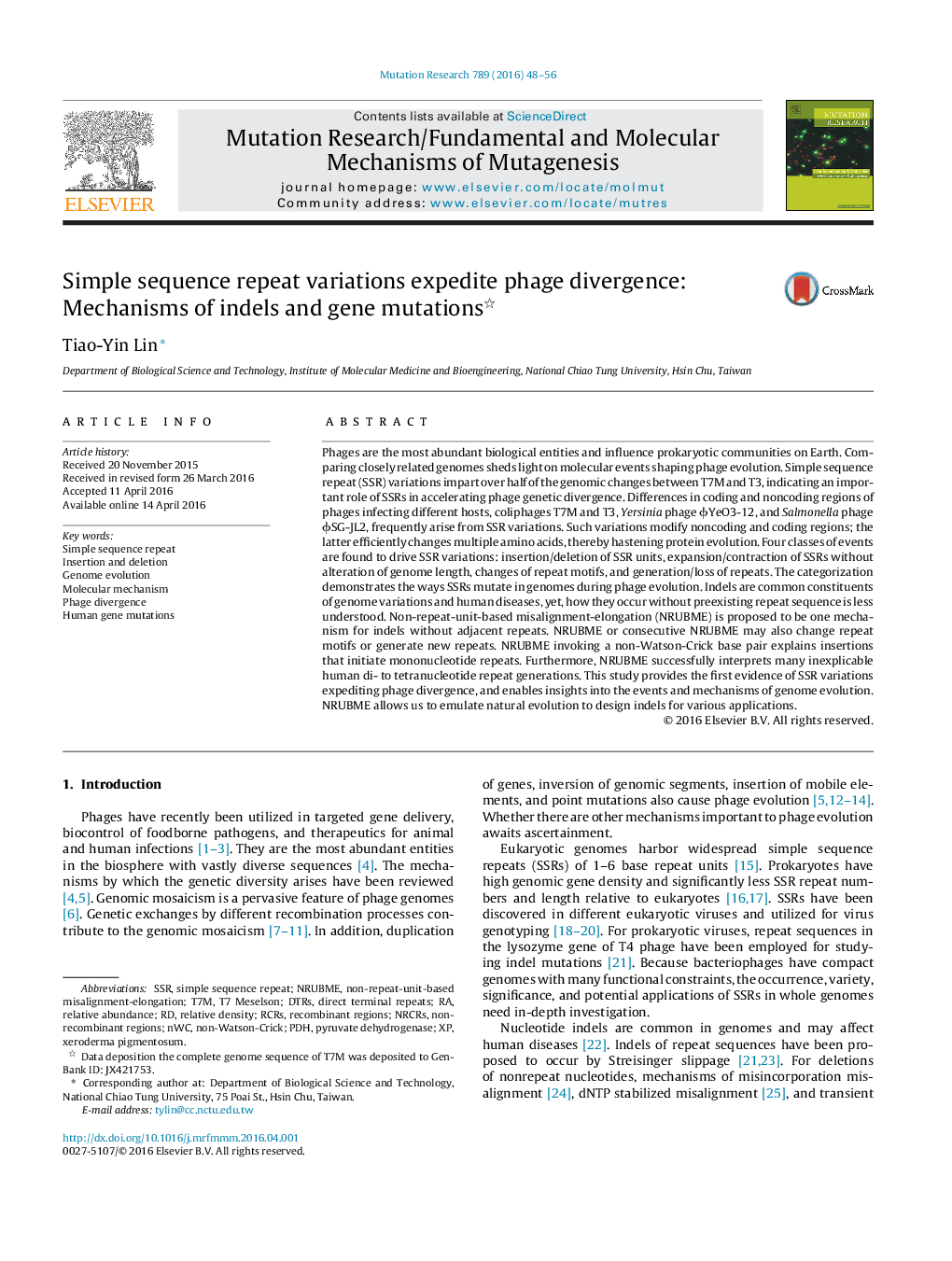| کد مقاله | کد نشریه | سال انتشار | مقاله انگلیسی | نسخه تمام متن |
|---|---|---|---|---|
| 2146129 | 1548311 | 2016 | 9 صفحه PDF | دانلود رایگان |
• SSR variations account for over half of the genomic changes between T7M and T3.
• Mutations of SSRs are categorized into four classes of events.
• Mechanisms of nucleotide indels without preexisting repeat sequence are proposed.
• The first evidence of SSR variations accelerating phage genetic divergence is shown.
• The mechanism for initiation of human di- to tetranucleotide repeat is explained.
Phages are the most abundant biological entities and influence prokaryotic communities on Earth. Comparing closely related genomes sheds light on molecular events shaping phage evolution. Simple sequence repeat (SSR) variations impart over half of the genomic changes between T7M and T3, indicating an important role of SSRs in accelerating phage genetic divergence. Differences in coding and noncoding regions of phages infecting different hosts, coliphages T7M and T3, Yersinia phage ϕYeO3-12, and Salmonella phage ϕSG-JL2, frequently arise from SSR variations. Such variations modify noncoding and coding regions; the latter efficiently changes multiple amino acids, thereby hastening protein evolution. Four classes of events are found to drive SSR variations: insertion/deletion of SSR units, expansion/contraction of SSRs without alteration of genome length, changes of repeat motifs, and generation/loss of repeats. The categorization demonstrates the ways SSRs mutate in genomes during phage evolution. Indels are common constituents of genome variations and human diseases, yet, how they occur without preexisting repeat sequence is less understood. Non-repeat-unit-based misalignment-elongation (NRUBME) is proposed to be one mechanism for indels without adjacent repeats. NRUBME or consecutive NRUBME may also change repeat motifs or generate new repeats. NRUBME invoking a non-Watson-Crick base pair explains insertions that initiate mononucleotide repeats. Furthermore, NRUBME successfully interprets many inexplicable human di- to tetranucleotide repeat generations. This study provides the first evidence of SSR variations expediting phage divergence, and enables insights into the events and mechanisms of genome evolution. NRUBME allows us to emulate natural evolution to design indels for various applications.
Figure optionsDownload as PowerPoint slide
Journal: Mutation Research/Fundamental and Molecular Mechanisms of Mutagenesis - Volume 789, July 2016, Pages 48–56
